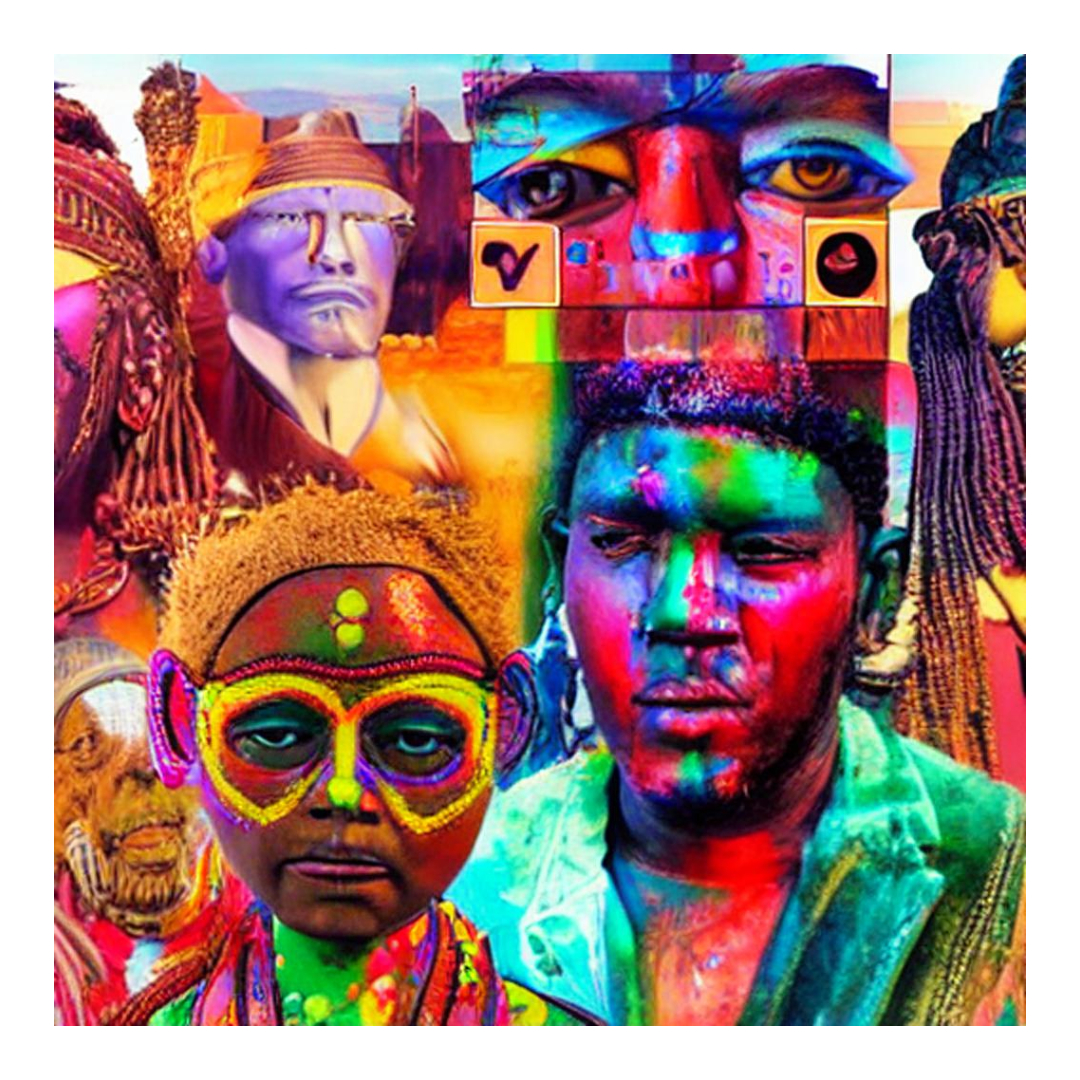A Fascinating Journey into the World of Cultural Anthropology
Cultural diversity and Cultural anthropology is a remarkable aspect of our world, encompassing a wide array of customs, beliefs, traditions, and practices that are unique to different groups of people. It is a tapestry of rich cultural heritage that spans across continents, nations, and communities, making our planet a truly diverse and vibrant place.
At the heart of understanding and appreciating cultural diversity lies the field of cultural anthropology, which provides profound insights into the significance of diverse cultures and their impact on society. In this article, we embark on a fascinating journey into the world of cultural anthropology, unveiling its marvels and shedding light on the importance of cultural diversity in today’s world.
Cultural anthropology is a field of study that focuses on the scientific investigation of human societies and cultures, past and present. It delves into the intricate dynamics of how culture shapes human behavior, beliefs, social structures, and interactions.
Cultural anthropologists conduct in-depth research, ethnographic studies, and fieldwork to gain a comprehensive understanding of diverse cultures and their significance in the world.

One of the key aspects of cultural anthropology is its emphasis on cultural relativism. Cultural relativism is the concept that all cultures are equally valid and should be understood and evaluated within their own cultural context, without imposing one’s own cultural values or beliefs.
This approach allows cultural anthropologists to appreciate and respect the diversity of human cultures, recognizing that each culture has its unique ways of perceiving and interpreting the world.
Understanding Cultural Anthropology
Cultural anthropology offers several valuable insights into the significance of cultural diversity. First and foremost, it highlights the intrinsic value of diverse cultures as important facets of human heritage. Every culture has its distinct customs, traditions, rituals, and ways of life that are passed down through generations, shaping the identity and sense of belonging of its people.

Cultural diversity provides a platform for the preservation and celebration of these unique cultural expressions, fostering cultural pride and promoting intercultural understanding.
Moreover, cultural diversity and cultural heritage contributes to the enrichment of human knowledge and understanding of the world. Each culture possesses a unique knowledge system, accumulated over generations through interactions with the natural environment, societal experiences, and historical contexts.
Cultural anthropology enables the documentation and study of these diverse knowledge systems, shedding light on the diverse ways in which humans perceive and make sense of the world. This knowledge can further enrich our understanding of human history, ecology, medicine, agriculture, and other domains, offering diverse perspectives and insights that can benefit humanity as a whole.
Furthermore, cultural diversity has profound implications for social justice and human rights. Cultural anthropology highlights the complex interplay between culture, power, and inequality. It underscores the importance of recognizing and addressing power imbalances, discrimination, and oppression that may arise from cultural differences.
By understanding and appreciating diverse cultures, cultural anthropology promotes tolerance, respect, and inclusivity, fostering a more just and equitable society where everyone’s rights and dignity are respected regardless of their cultural background.
In today’s interconnected and globalized world, cultural diversity is becoming increasingly relevant. Rapid globalization, migration, and technological advancements have brought people from diverse cultural backgrounds into closer contact than ever before. Cultural anthropology offers insights into how cultures adapt, evolve, and interact in this globalized landscape.
It helps us understand the challenges and opportunities that arise from cultural diversity in the context of globalization, such as cultural integration, identity negotiation, and intercultural communication. Cultural anthropology provides valuable tools and knowledge for individuals, communities, organizations, and policymakers to navigate the complexities of cultural diversity in a globalized world, promoting harmonious interactions and mutual understanding.

Moreover, cultural diversity has significant implications for economic development and sustainability. Cultures often influence the economic practices and systems of a community or society. Cultural anthropology sheds light on how cultural diversity impacts economic activities such as agriculture, trade, production, and consumption. It helps us understand how different cultures approach economic development, resource management, and sustainability practices.
READ ALSO: Once interest rates increased, UBA’s quarterly profit increased by 29% to N53.6 billion
By recognizing and incorporating diverse cultural perspectives into economic policies and practices, we can promote sustainable and inclusive development that respects local cultures and fosters economic resilience.
In addition to its societal and economic significance, cultural diversity also plays a crucial role in promoting creativity, innovation, and problem-solving. Different cultures have distinct ways of thinking, perceiving, and approaching challenges. Cultural anthropology highlights the diverse ways in which humans adapt, innovate, and solve problems within their cultural context. This diversity of perspectives and approaches can inspire creativity and innovation by fostering cross-cultural collaborations and exchanges of ideas. In today’s globalized and interconnected world, businesses, organizations, and governments are increasingly recognizing the value of diverse cultural perspectives in driving innovation and solving complex problems.
Incorporating cultural diversity into various aspects of life can also enhance personal growth and intercultural competency. Exposure to diverse cultures through cultural anthropology can broaden one’s worldview, foster empathy, and enhance intercultural communication skills. It can also challenge stereotypes, biases, and assumptions, leading to greater tolerance, respect, and acceptance of diverse cultures.
Developing intercultural competency is becoming increasingly important in a world where intercultural interactions are common in various settings such as education, work, travel, and social interactions. Cultural anthropology provides the knowledge and understanding necessary to develop intercultural competency and navigate diverse cultural environments with sensitivity and respect.

Cultural anthropology serves as a window into the fascinating world of cultural diversity. It offers profound insights into the significance of diverse cultures, highlighting their intrinsic value, contributions to human knowledge, implications for social justice and human rights, relevance in a globalized world, impact on economic development and sustainability, and role in promoting creativity and personal growth.
Cultural anthropology emphasizes cultural relativism, respect, and appreciation for diverse cultures, promoting tolerance, inclusivity, and intercultural understanding. In a world where cultural diversity is increasingly relevant, cultural anthropology provides valuable tools and knowledge for individuals, communities, organizations, and policymakers to navigate the complexities of cultural diversity and promote a more inclusive, harmonious, and resilient society.
Importance of Cultural Anthropology in Celebrating Diversity
Cultural anthropology plays a crucial role in helping us understand and appreciate cultural diversity in several ways:
- Preserving Cultural Heritage:
Cultural anthropology helps in documenting and preserving the cultural heritage of different communities. By studying and documenting cultural practices, rituals, traditions, and knowledge systems of diverse cultures, cultural anthropologists contribute to the preservation of intangible cultural heritage. This helps to safeguard cultural diversity by ensuring that traditional practices and knowledge are not lost or forgotten over time.
- Promoting Cultural Appreciation:
Cultural anthropology promotes the appreciation of diverse cultures by providing insights into the values, beliefs, and practices of different communities. By studying and understanding different cultural perspectives, cultural anthropologists highlight the richness and uniqueness of each culture, fostering a sense of respect, tolerance, and appreciation for diversity.
- Facilitating Cultural Exchange:
Cultural anthropology facilitates cultural exchange by fostering cross-cultural understanding and communication. Through fieldwork and participant observation, cultural anthropologists establish relationships with local communities, learn their languages, and immerse themselves in their cultures. This enables them to bridge cultural gaps, facilitate meaningful interactions, and promote cross-cultural exchange, which fosters mutual understanding and appreciation.
- Enhancing Intercultural Competence:
Cultural anthropology enhances intercultural competence, which is the ability to effectively communicate, collaborate, and engage with people from diverse cultural backgrounds. By gaining insights into different cultural norms, values, and communication styles, cultural anthropologists develop the skills needed to navigate cultural differences and build meaningful relationships with people from different cultures. This promotes intercultural understanding and reduces misunderstandings and conflicts arising from cultural differences.
- Supporting Multiculturalism:
Cultural anthropology supports multiculturalism, which refers to the coexistence of multiple cultures within a society. By studying and promoting cultural diversity, cultural anthropologists contribute to the recognition and acceptance of different cultures within a society, fostering an inclusive and harmonious multicultural society. This helps to create a positive environment where people from different cultural backgrounds can thrive, share their cultural practices, and contribute to the enrichment of society.



































































